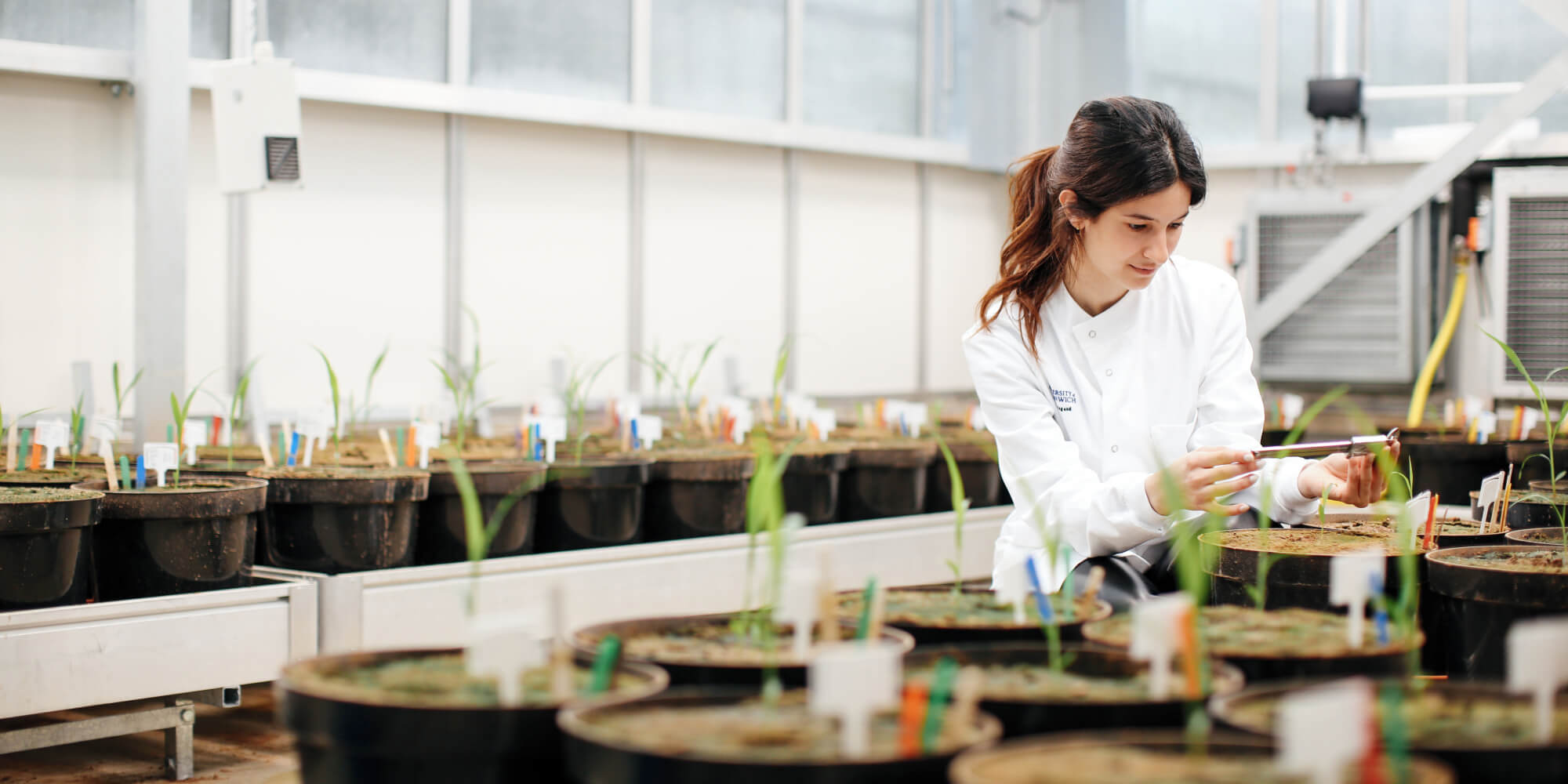The research projects taking place right now on the Medway Campus from the School of Science at the University of Greenwich will have huge implications in the UK and abroad.
Carbon neutral farming with agrivoltaics
Research led by Dr Elinor Thompson, Associate Professor/Reader at the University of Greenwich, is looking at how a fruit farm can both generate solar power and produce crops on the same land, by fitting semi-transparent photovoltaic materials on their glasshouses and polytunnels. The project has attracted interest nationally after she appeared on BBC Radio 4 on Farming Today in June 2022 to discuss the project and its implications. It was the recipient of a grant of a quarter of a million pounds.
The University is collaborating with a solar panel company and prominent fruit business to demonstrate that photovoltaic materials can be retro-fitted to existing growth facilities, produce useful power, and not interfere with the crop. This could mean less new land is needed to increase the solar electricity capacity of the UK, and can reduce the carbon usage of food producers. As part of the project, the University of Greenwich is also testing the effects on plants of coloured solar panels at its Medway Campus and at Hadlow College, work that continues a collaboration with other academic photosynthesis researchers. With her interest in photosynthesis in microbes and plants, Dr Thompson was recently appointed to be a representative on the Royal Society for Biology Plant Science Group for the Microbiology Society.
Greenifying chemistry
Meanwhile, another project on the Medway Campus seeks to “greenify” chemistry under Dr Kevin Lam, Associate Professor/Reader in Medicinal Chemistry, whose team are replacing the use of harsh, expensive and toxic chemicals with electricity. His research has also attracted huge interest, with it being the reason PhD student Cyrille Kiaku made the decision to travel to the UK to join the university’s School of Science from France.
3D printing for the future
Professor in Pharmaceutical Technology and Process Engineering and Director of the Centre for Innovation in Process Engineering and Research, Professor Dennis Douroumis, is carrying out research into 3D printing in what is a multidisciplinary approach spanning disciplines in science, engineering and technology. In his laboratories on the Medway Campus, he has been working on the 3D printing of medical devices including stents and microneedles. His work into medical stents, in a partnership with computational modelling expert of the School of Engineering Dr Michael Okereke, seeks to print polymeric stents – tiny tubes used in the body to open passageways such as blocked arteries – that will dissolve over time in the body. This development will have huge implications for the future, as stents have previously been made of metal and remain in the body indefinitely, posing many risks to patients. The microneedles Professor Douroumis has created, meanwhile, are tiny enough not to pierce or damage the skin, a positive step forwards for a wide range of fields including medicine, surgery, and cosmetology. He is also working with Dr Nazanin Zand on the 3D printing of fortified food for paediatric and geriatric patients.
These are just some of the ground-breaking projects taking place at the Faculty of Engineering and Science. The university recently performed strongly in the Research Excellence Framework (REF) results. The University of Greenwich welcomes applications for postgraduate research degrees (MPhil/PhD/EdDs). More information about how to apply and about entry requirements can be found on the university website.



